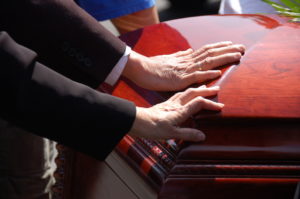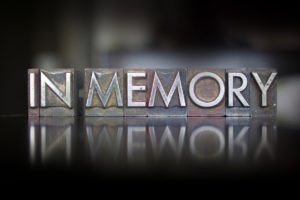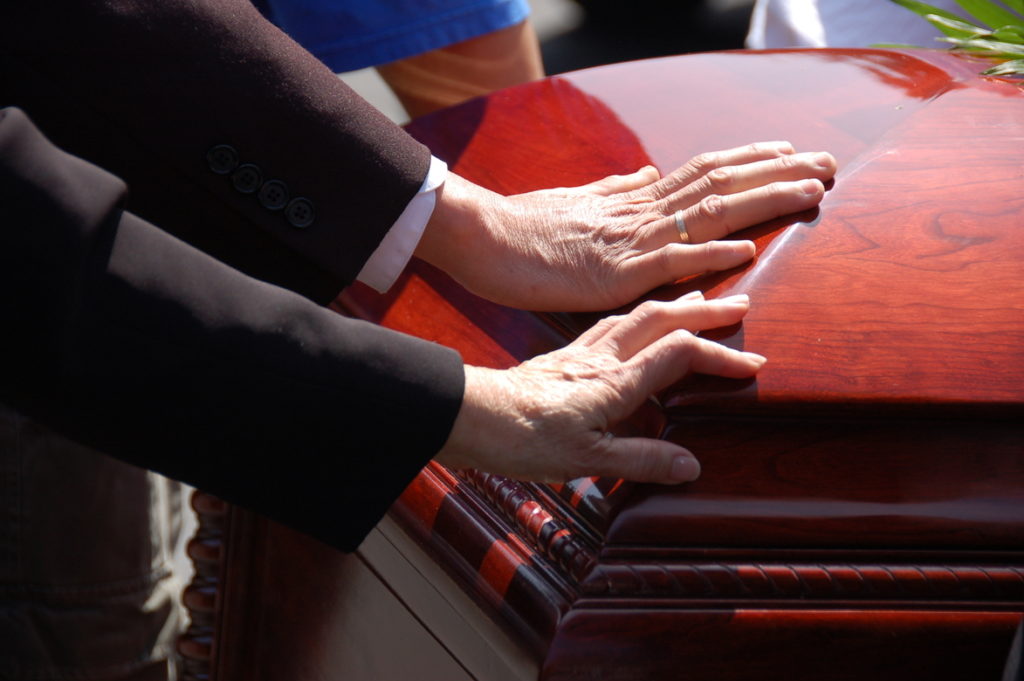It’s 2 am, on a crisp, now Wednesday, morning. Chills creep down my spine, and a single tear rolls down my cheek as I realize it’s time. It’s time to move the body. Tonight wasn’t supposed to end like this…but is any night supposed to end in the death of a loved one?
Death is funny a thing. It’s something we can all relate too. It’s something that no matter how hard we try, will always be in the back of our minds. But, it’s also the thing that makes life worth living for.
My uncle was like a second father to me. Having no kids of his own, my siblings and I were his children. He was at every birthday, every graduation and every single hockey game that I played.
As I help carry the body of my deceased uncle out of his basement, a wave of overwhelming emotion hits me, hard. I double over ready to puke, but right before, I see my father, longing for his dead brother; knowing he will never see him, touch him or talk to him again. I see my sister and horrible flash takes me to the future… is this how it will be for her and I.
I take a deep breath and muster the courage to continue moving the body. I can’t stop now. My father needs me. We load the body into the funeral home van, thank everyone for their help and go our separate ways.
This article is not meant to gather sympathy. Rather I wrote it to be a leg of support for anyone who will inevitably go through the same thing, to lean on, with the simple message: it will be ok.
Understanding Grief

Grief is a natural response. It helps us cope and heal when the connection with a loved one, has been irreversibly severed. It is beyond painful, but it is also necessary.
In 1969, psychiatrist Elisabeth Kübler-Ross introduced to the world, the “five stages of grief.”
1. Denial
2. Anger
3. Bargaining
4. Depression
5. Acceptance
And although these are common responses to loss (especially when it’s a loved one) there is no time line or structure to move through these processes. Besides, you may not even go through all these stages linearly, but rather jump around as I did.
Kübler-Ross never intended for these stages to be a rigid framework for everyone experiencing grief. Before her death in 2004, she said this regarding the issue:
“They were never meant to help tuck messy emotions into neat packages. They are responses to loss that many people have, but there is not a typical response to loss, as there is no typical loss. Our grieving is as individual as our lives.” (1)
Some people will withdraw into a deep corner, isolating themselves from the world. Others will throw themselves into work, take drugs or overcompensate for distraction. And others will simply cry until there isn’t a single tear left to shed.
Please know that there is no “right” way to grieve and that you don’t have to get back to “normal” – that will never happen, and it’s a blessing. It wasn’t until I realized that I was never supposed to go back to “normal,” that I took back control of my life.
The way you feel at the time is the right way for you to feel. Life and death are a personal journey. You’re allowed to do whatever it is that you need to heal.
Suppressing your feelings and being “tough” or “strong” is a dangerous game to play; it builds an unstable emotional dungeon, ready to collapse at any moment. When you allow yourself to be open and be vulnerable, you allow the grieving process to do its job: Healing you.
Living in the moment, even when it sucks

If you’ve read any personal development, it’s continuously preached that living in the present is a fundamental component to success and happiness. But what do we do when the moment sucks? How do we live in the moment when we are doing all we can to stay afloat, from the waterfall of depression crashing down on us?
You learn to sit in the pain, accepting it without judgment.
Without this, you start playing the “what if” game. What if I was there 10 minutes, before his heart attack? What if I spent more time talking with him and helping him/her? What if I called more, loved more and on and on. Once you let that game in, it consumes you.
Instead of sleeping at night, you are wide awake thinking of million possibilities; convinced that if you did this or that you could somehow bring that person back.
Living in the moment when it sucks, allows you to avoid this never-ending wormhole.
When you resist the tidal wave of emotions from death, they build up into a terrifying tsunami, that will eventually come crashing down on you.
The first days (and weeks) after my uncle’s sudden passing, I allowed myself to succumb to the overwhelming misery; yet at the same time, I took action. Rather than ignoring the pain, I experienced it, completely and responded to it. I listened and gave it an identity. I let it consume me, not fighting or resisting, but watching, observing and learning from it.
I allowed myself to break into tears without judgment spontaneously. I lived in the moment, even when that moment was raw, unfiltered misery. The tears eventually slowed… and the despair evaporated; by allowing pain to have its moment, its moment passed.
Sadness allows for the roots of joy to take hold and flourish.
I stopped shedding tears because it’s over and instead, started cracking smiles because it happened. In remembering who he was and what he meant to me, I found myself appreciating the time we had, and honoring that.
Forgiveness

Time doesn’t heal all. Spending my days playing video games and binge watching Netflix didn’t do a damn thing for me. It didn’t make the time go by faster or help me forget. Instead, it made each day seem more and more meaningless. Spending your time avoiding the pain is only pushing back the healing process. Time well spent, on the other hand, starts the healing process.
And the greatest way to spend time when dealing with loss? Basking in Forgiveness.
Forgiveness is vital in letting go and moving forward. Not only forgiving others but also forgiving yourself. Forgiving yourself of all the guilt you are keeping locked in a cage for your loved one.
When my uncle passed, I felt responsible for every mishap in my head and for all the times I didn’t tell him I loved him or hugged him.
In forgiving, I freed myself and my life of anger, betrayal and hurt. This made room for peace and love to take root and enter my heart.
If you’re dealing with the loss of someone you love, practice your presence each day and become aware of the thoughts coming filtering through your mind. Allow yourself to be sad, angry and hurt but more importantly, allow yourself to be happy. Forgiveness is the real gift you can give back to your loved one who is gone and to those still with you.
Going forward doesn’t mean forgetting. Enjoying life again doesn’t imply that the person is no longer missed or somehow forgotten. It simply means that grief has run its course. Period.
There will always be a crater where my uncle once stood. By learning to embrace the awful moments in the present—the sad moments, the inevitable times when I remember I will never see him at another hockey game or a family dinner—I have learned that they, like everything, are not permanent. They are moments to be celebrated because they happened. And finally, that embracing the present moment even when it sucks the most, is the only way to truly, live.

TZEMIS, Andy —July 15, 1948 – February 21, 2017
Born in Athens, Greece on July 15, 1948, Andy came to Canada with my grandmother in 1958, one year after his father had arrived.
Following his graduation from Sir Wilfred Laurier University, Andy pursued a career in sales and advertising working with CFNY and CFMT. He had an outgoing and sincere personality that you couldn’t help but love. Always quick with a smile and a kind word, Andy made everyone around him feel better. He was and will always be the life of the party.
His involvement with AHEPA was his hobby and his passion. He spent most of his life supporting the community work that AHEPA was involved in which included volunteering as a big brother. Being an avid sportsman, nothing was more precious to Andy than to watch his niece and three nephews play in their various sporting events. Always with a post game encouraging word and thought, uncle Andy was their premiere fan.
My uncle was loved by so many great and caring friends and adoring family that I know his presence will be missed tremendously.
The single most wonderful characteristic about Andy was that no matter what, he was always there for his family and friends. His unselfish words “what do you need man?” will forever live in our thoughts. Now, with our prayers, we are all here for him.
May God Rest your Soul and may Eternal be your memory.
(1) “Coping with Grief & Loss.” N.p., n.d. Web. 26 Feb. 2017 <https://www.ucdmc.ucdavis.edu/hr/hrdepts/asap/Documents/Coping_with_Grief.pdf>.

Comments are closed.